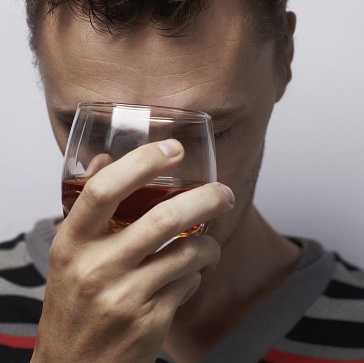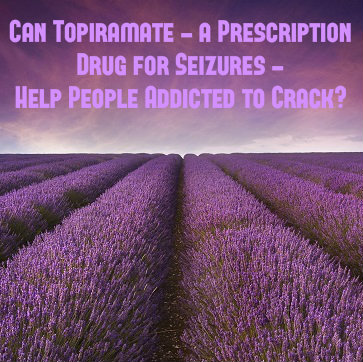Medication commonly plays an important role in the effective treatment of alcoholism (one of the two overlapping conditions that constitute alcohol use disorder). Some of the medication options in use were specifically designed to help people affected by problematic alcohol use, while others were originally designed for the treatment of non-alcohol-related health concerns.
In a study published in April 2014 in The American Journal of Drug and Alcohol Abuse, researchers from the Boston University School of Medicine explored the potential usefulness of an anti-seizure medication called ezogabine or retigabine as a treatment for people diagnosed with alcoholism.
Medications For Alcoholism Treatment
 Doctors have four main medication options for helping people affected by alcoholism. Two of these options, disulfiram (Antabuse) and acamprosate (Campral), were developed primarily for alcohol-related treatment. Pharmaceutical researchers initially developed the third option, naltrexone (ReVia, Vivitrol), as a treatment for people diagnosed with opioid addiction. The fourth option, topiramate (Topamax), was originally intended to help individuals affected by certain types of seizure disorders.
Doctors have four main medication options for helping people affected by alcoholism. Two of these options, disulfiram (Antabuse) and acamprosate (Campral), were developed primarily for alcohol-related treatment. Pharmaceutical researchers initially developed the third option, naltrexone (ReVia, Vivitrol), as a treatment for people diagnosed with opioid addiction. The fourth option, topiramate (Topamax), was originally intended to help individuals affected by certain types of seizure disorders.
The U.S. Food and Drug Administration has officially approved disulfiram, acamprosate and naltrexone as alcoholism treatments. The FDA has not approved topiramate for alcoholism treatment; however, doctors can still prescribe this medication as an unofficial or “off-label” option.
Unique Results
Each of the current medication options for alcoholism produces results in its own distinct way. For example, disulfiram deters drinking by slowing down the body’s ability to process alcohol and sharply exaggerating the unpleasant symptoms associated with excessive alcohol consumption. Acamprosate helps ease some of the worst symptoms of alcohol withdrawal by making certain changes in the brain’s chemical balance.
Naltrexone helps block the nerve receptors that normally give opioid narcotic substances access to the brain; for reasons that are not entirely clear, this action also interferes with the pleasure derived from alcohol consumption and reduces the strength of cravings for more alcohol intake. Topiramate helps reduce any overactivity in the brain’s nerve cells; although no one really knows why, this reduction also diminishes the strength of alcohol cravings and helps lower the risks for participation in excessive drinking.
Outside of the U.S., ezogabine is also commonly known as retigabine. Its brand name within the U.S. is Protiga. Like topiramate, ezogabine belongs to a group of medications called anti-seizure medications or anticonvulsants. Doctors typically use the medication as part of a larger course of treatment for adults affected by seizures called partial onset seizures, which remain localized in one part of the brain rather than branching out and producing more widespread effects. Ezogabine comes in tablet form.
Ezogabine In Alcoholism Treatment
In the study published in The American Journal of Drug and Alcohol Abuse, the researchers from the Boston University School of Medicine used laboratory experiments on rats to investigate the usefulness of ezogabine (retigabine) as a treatment for alcoholism. These researchers had previously explored the potential usefulness of other types of anti-seizure medications and chose to focus on ezogabine because the medication works in a fairly unique way inside the brain.
During the study, the researchers gave ezogabine to two groups of rats for three days. One of these groups had access to a 10 percent solution of pure drinking alcohol, while the other group had access to a 5 percent alcohol solution. A comparison group of rats received a placebo instead of ezogabine. After comparing the outcomes in the three groups, the researchers concluded that the rats given ezogabine significantly reduced their alcohol intake over the course of the study.
The authors note that the therapeutic dose of ezogabine given to the rats in the project was quite close to the dose capable of producing an unwanted loss of muscle control. This means that, in human beings, the amount of the medication needed to help recovering alcoholics curb their drinking may not differ much from the amount capable of causing harm. Citing this finding, the study’s authors call for more research to investigate the specific effects that ezogabine has inside the central nervous system (brain and spinal cord). In addition, they feel that their ezogabine-related work can play an important role in the search for other medications that work in a similar way and may ultimately provide unique benefits in alcoholism treatment.
Call Us Now For Alcohol Abuse Help! We Are Here For You 24/7!
Topiramate (Topamax) is a prescription medication originally developed as a treatment for certain seizure disorders. Doctors also sometimes prescribe this medication to people affected by other serious health issues, including alcohol addiction. In a study published in May 2014 in the journal Drug and Alcohol Dependence, researchers from two Dutch institutions explored the potential usefulness of topiramate as a treatment for people addicted to crack cocaine. These researchers found that only a small subset of individuals addicted to this form of cocaine clearly benefit from topiramate use.
How Does Topiramate Work?
Specific seizure disorders treated with topiramate include Lennox-Gastaut syndrome and certain forms of epilepsy. The medication helps people affected by these conditions by easing excessive nerve activity inside the brain. This same effect on brain function can also help stop migraine headaches from occurring.
When given to people affected by alcoholism, topiramate can diminish the severity of some of the symptoms associated with alcohol withdrawal, and can thereby help reduce the likelihood that a recovering alcoholic will lapse back into active drinking. Doctors may also prescribe the medication to people affected by medically serious forms of obesity. Available forms of topiramate include tablets and specially designed granules that users can release from a capsule and mix with food.
Topiramate And Cocaine Addiction
 There is no medication in doctors’ treatment arsenals approved to help people affected by cocaine addiction. Instead, successful treatment typically depends on a form of behavior modification therapy called cognitive behavioral therapy or on other non-medication-based therapeutic options. Addiction researchers are actively looking for new medications that could help people addicted to cocaine, as well as existing medications that could be adapted for use in cocaine addiction treatment.
There is no medication in doctors’ treatment arsenals approved to help people affected by cocaine addiction. Instead, successful treatment typically depends on a form of behavior modification therapy called cognitive behavioral therapy or on other non-medication-based therapeutic options. Addiction researchers are actively looking for new medications that could help people addicted to cocaine, as well as existing medications that could be adapted for use in cocaine addiction treatment.
In a study published in October 2013 in the American Medical Association journal JAMA Psychiatry, a multi-university research team studied the effects of topiramate on 71 adults impacted by cocaine addiction. These researchers concluded that, compared to recovering addicts who don’t receive the medication while undergoing cognitive behavioral therapy, those who receive both topiramate and cognitive behavioral therapy experience improvements that include longer periods of cocaine abstinence (verified by an increased number of cocaine-free urine drug tests) and a reduced craving for further cocaine intake.
Potential Usefulness Of Topiramate In Crack Cocaine Treatment
Crack cocaine is powdered cocaine that has undergone an additional step of chemical processing. While the two forms of the drug have the same basic brain effects, crack only produces these effects for a relatively brief amount of time. This means that users of this form of cocaine may take the drug more frequently, and therefore may have greater odds of eventually experiencing the long-term brain changes associated with cocaine addiction.
In the study published in Drug and Alcohol Dependence, researchers from Parnassia Addiction Research Centre and the University of Amsterdam specifically investigated the potential usefulness of topiramate treatment in people addicted to crack cocaine. Thirty-seven participants in the study received a 12-week combination of topiramate and cognitive behavioral therapy, while another thirty-seven participants only received cognitive behavioral therapy.
The researchers mainly measured the effectiveness of topiramate treatment by comparing the rate of continued program involvement among recipients of the medication to the rate of continued involvement among those who did not receive the medication.
Variance Factors In Topiramate Use
In addition, they assessed such things as the regularity with which participants took their prescribed topiramate, the presence of negative side effects in the topiramate users, the ability to avoid using cocaine or other substances, the ability of medication users to interact in socially appropriate ways and the level of satisfaction that the topiramate recipients expressed toward use of the medication.
After completing their assessments, the researchers found that topiramate didn’t produce any serious side effects in the study participants. However, they also found that most of the medication recipients did not take it on a regular basis. In addition, they concluded that use of topiramate neither increased the length of involvement in cocaine addiction treatment nor generally contributed to a reduction in the consumption of cocaine or any other substance.
Critically, one group affected by crack cocaine addiction did benefit from topiramate use: those individuals simultaneously impacted by an addiction to opioid drugs or medications. This subset of addicts significantly lowered their cocaine intake while taking topiramate.
Importance Of Consistency Of Topiramate Use
The authors of the study published in Drug and Alcohol Dependence link the low level of topiramate effectiveness in crack cocaine addicts to highly inconsistent intake of the medication. Because many people in treatment don’t maintain their medication routines, the authors believe that topiramate may only play a relatively minor role in addressing the effects of crack cocaine addiction.
If you or a loved one is struggling with cocaine or any other addiction, call us now! We are here to help you!
Read More About The Addiction Treatment Uses For Topiramate
The college years are filled with opportunities to compete. From academic contests to dorm room antics, there is a drive on campus to define hierarchies and social order. Even in college partying, where the scene may seem to be much more chaos and order, there are social ordering activities taking place. Drinking games are often used to show how a person handles alcohol or can retain their cognitive abilities while under the influence.
Previous studies have shown that engaging in drinking games can predict whether a college student will drink heavily. However, little is known about whether the type of drinking game will affect how heavily a student will drink. Recently a team of researchers examined various drinking games and their relationship to the drinking behaviors of college students (LaBrie, Ehret & Hummer, 2013).
The participants were recruited through two universities located on the west coast. They were invited to participate in a web-based screening. The researchers used the results to include only the participants who reported consuming at least one drink per week, resulting in 3,421 participants or 68.3 percent of the respondents to the survey.
The participants were asked about demographics, including whether or not they participated in the Greek system and also were asked about their drinking game activities. The researchers asked the participants how many days they participated in drinking games, the games played and the alcohol consumed on the occasions when the games were played.
Alcohol Games leading to Alcohol Abuse and Addiction
 To get an understanding of the various games the students mentioned, the researchers used the Internet to search descriptions of the games. There were 100 distinct games coded by the researchers, distributed into five categories.
To get an understanding of the various games the students mentioned, the researchers used the Internet to search descriptions of the games. There were 100 distinct games coded by the researchers, distributed into five categories.
The results showed that competition games were the most popular games, followed by chance games. The majority of respondents indicated that the competition games were also the games in which they drank the most alcohol.
Peak drinking games were reported differently by gender, race and Greek status. Students who were Caucasian males who participated in the Greek system were most likely to report peak drinking connected with competition games. The highest number of drinks associated with a peak drinking game was found to occur during extreme consumption games.
The authors note several limitations associated with the findings. For instance, the results were based on self-report and suffer the usual possible problems associated with recall bias. In addition, the question related to drinking games was open-ended and may have affected how the students responded.
The findings of the study provide new insight into the influence that the atmosphere and culture of a college campus and its traditions relating to drinking games may impact students’ drinking behaviors. It may serve to educate students about the risks of engaging in tempting competition that leads to heavy drinking.
Alcohol leads to more than addiction, but medical issues too. Read: Alcohol, a Preventable Cancer Risk ‘Hiding in Plain Sight’


